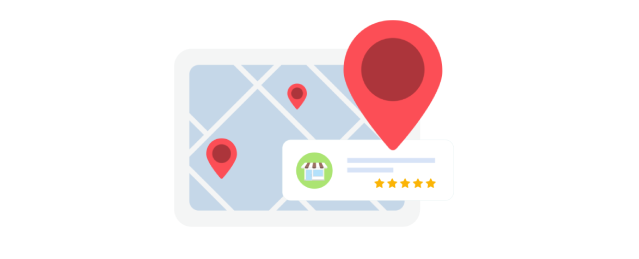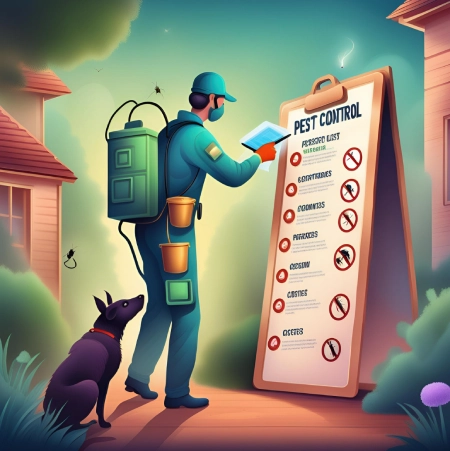Running a pest control business means you’re always on call, ready to handle emergencies that can quickly turn someone’s day upside down. Nowadays, when people need to get new goods or services, their first instinct is almost always the same, they search online. Pest control is no exception. So, the question is: when potential customers in your area search for pest control, does your business show up? If you’re not visible on search engines, you’re likely losing those customers to competitors who are.
A website is necessary, but just having it isn’t enough. You have to make it visible to those who are looking for the services you provide. Search Engine Optimization (SEO) is all about making your business easy to find online and putting it in front of the right people at the right time.
In this article, we’ll look at why SEO is important for your pest control business and provide useful recommendations for improving your visibility, driving more traffic to your website and eventually gaining more clients.
Why it Matters:
SEO is the gateway to getting noticed online and converting that visibility into customers.
- Visibility 90% of users don’t look past the first page of Google. If your website isn’t there, it might as well not exist to them.
- Credibility People trust Google’s rankings. The higher your business appears, the more credible it seems to potential customers.
- Increased Leads Higher visibility naturally leads to more website traffic, and in turn, more leads. If they can find you quickly, they’ll call you first.
- Local Relevance SEO can help you rank higher for searches that matter in your service area, like “ bug exterminator [city name].”
7 SEO Tips for Pest Control Businesses (With Tools)
To give your pest control business the best chance of standing out, here are 7 actionable SEO tips you can start using today. Whether you’re doing it alone or with a digital marketing specialist, these strategies will help you move up the search rankings.
1. Optimize for Local SEO

Most people looking for pest control services are searching locally. They need someone to solve their problem quickly, so they often include terms like “near me” or use specific city names. Claim and optimize your Google My Business profile. This is crucial for ranking in local searches and Google Maps. Include accurate business information (name, address, phone number), business hours, and relevant categories (like “pest control service”). Don’t forget to add photos and encourage customers to leave reviews!
Tool: Google My Business (Free)
2. Use Keywords

Keywords are what connect your business to potential customers’ search queries. The more relevant your keywords are, the more likely you are to show up when they search.
looking for pest control services in your area. Make sure these keywords appear naturally in your website’s content, especially in key areas like page titles, meta descriptions, headers and service pages.
Tools: Google Keyword Planner (Free); SEMrush (Paid)
3. Build Backlinks

Backlinks, or links from other trustworthy websites to yours, indicate to Google that your site is reliable and credible. The more quality backlinks you have, the higher your site will rank.
Earn backlinks by writing guest blog posts for industry websites or partnering with local businesses for cross-promotion.
Tools: Ahrefs (Backlink Analysis)
3. Create Quality, Informative Content

Google prioritizes websites that provide value to users. Google prioritizes websites that offer value to users. A blog or FAQ section on your website that answers frequently asked questions (such as “How do I get rid of ants?” can increase traffic and trust. Create a content strategy and publish articles or updates to your website on a regular basis. This shows customers that you are an expert in pest control. Cover common issues, seasonal pest problems, and useful tips that attract more visitors.
Tools: AnswerThePublic (Keyword Ideas); Grammarly (Content Quality)
4. Improve website speed and Make it Mobile-friendly

People looking for any services are often in a rush. If your website takes too long to load, they’ll bounce off and visit a competitor’s site. Google also uses website speed and mobile optimization as ranking factors. Compress images, reduce code bloat and make sure all works smoothly on mobile devices. A mobile-friendly design is essential because most local searches are done on smartphones.
Tools: Google Page Speed Insights (free)
5. Use Structured Data

Structured data (also known as schema markup) helps search engines better understand the content of your website. This increases your chances of appearing in rich snippets, local packs, and other advanced search features.
Add structured data to your site, particularly for local business listings. This helps Google display your company’s information clearly in search results.
Tool: Google Structured Data Markup Helper
With vs. Without SEO: The Difference It Makes
Let’s consider a scenario where you’ve implemented an SEO strategy versus one where you haven’t.
With SEO:
- Higher visibility
- More leads
- Credibility and trust
- Consistent traffic
Without SEO:
- Lost opportunities
- Missed leads
- Increased ad spending
- Less credibility
Without SEO, search engines struggle to recognize your website as relevant for potential customers’ queries, pushing it further down the rankings. This makes it harder for people to find you, resulting in fewer leads and more business going to competitors who rank higher. In response, you may rely on paid ads to gain visibility, but this approach is often costly and only provides short-term results. Unlike SEO, which builds long-term, organic traffic, paid ads stop working as soon as you stop paying, making it less sustainable for ongoing growth.
For more information, check out How to Rank Higher on Google
Frequently Asked Questions
Q: Should I employ an SEO specialist or do it myself?
A: It all depends on your budget and available time. DIY SEO is possible, particularly for basic procedures like keyword research and content development; however, for advanced tactics (such as technical SEO), experts can help you realize faster and more significant outcomes.
Q: Is SEO expensive?
A: SEO does not need to be costly. While some tools and services have a fee, many basic SEO strategies (such as optimizing your Google My Business profile) are free.
Q: How long does SEO take to work?
A: SEO is a lengthy process. You can start seeing small improvements in a few weeks, but for significant results, expect 3-6 months. Consistency is key.
Conclusion
Maintaining an active online presence and adding fresh content to your website regularly will improve your search engine rankings and also your reliability and reputation among potential clients. SEO helps you communicate with the correct audience in addition to drawing in visitors. By putting these 7 tactics into practice, your company can position itself as the leading provider of pest control services in your area, giving you a competitive edge when it matters the most.



